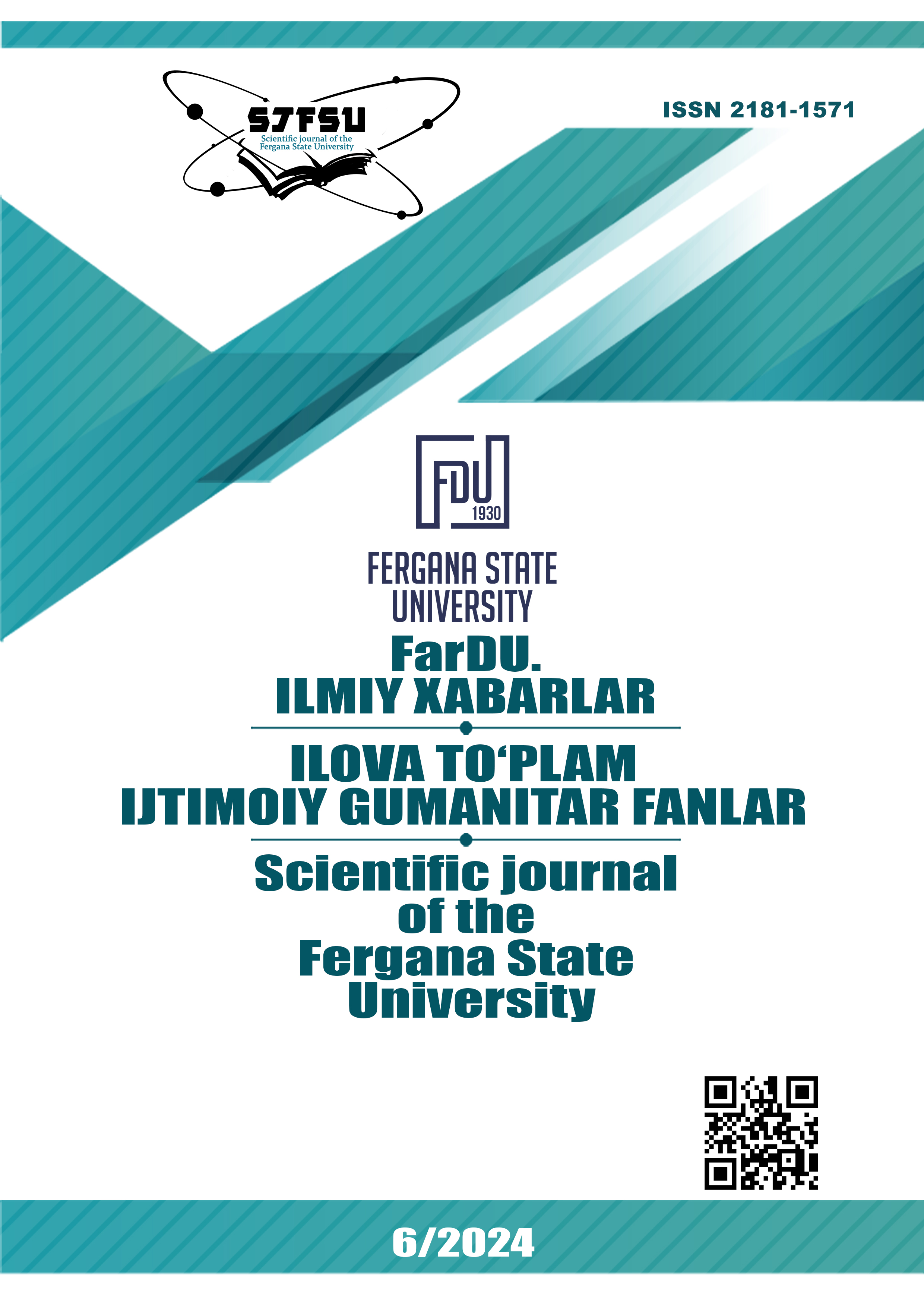THE INFLUENCE OF NIETZSCHE'S PHILOSOPHY ON EARLY 20TH-CENTURY RUSSIAN LITERATURE
Keywords:
freedom, power, morality, individualism, search for the meaning of life, crisis of values.Abstract
The article is dedicated to the study of Friedrich Nietzsche's philosophy in early 20th-century Russian literature. Amidst ongoing social and revolutionary transformations caused by political changes, Nietzsche's ideas about the Übermensch, the will to power, the destruction of traditional moral culture, and the "revaluation of all values" served as an inspiration for a number of Russian writers. The article analyzes Nietzsche's philosophical concepts, such as the concept of the Übermensch, the idea of eternal recurrence, and the idea of the will to power, as well as their understanding and interpretation.
Particular attention is paid to the work of Fyodor Dostoevsky, whose ideas about moral responsibility, freedom, and internal conflict closely align with Nietzsche's philosophical reflections. Despite the chronological difference, Dostoevsky’s works, such as Demons and The Brothers Karamazov, contain elements that intersect with Nietzsche's philosophy on moral ambivalence and the crisis of traditional moral foundations.
The article further examines Nietzsche’s influence on the work of Andrei Bely, Mikhail Bulgakov, and Vladimir Mayakovsky. In Bely’s works, such as the novel Petersburg, one can see elements related to the destruction of old values and the search for a new spiritual order, echoing Nietzschean ideas of self-determination and transcendence. In Bulgakov’s The Master and Margarita, issues of power, freedom, and moral responsibility are explored, which can also be interpreted through the prism of Nietzsche's philosophy. Mayakovsky’s poetry, with its nihilistic orientation, presents ideas of dismantling old forms and creating a new ethic, consistent with Nietzsche's concept of "revaluation of values."
The article examines how Nietzsche's philosophy not only introduced new ideas but also posed a cultural challenge for Russian writers striving to express protest against the oppression of the social and moral structure. In the revolutionary changes and cultural quests of the early 20th century, Nietzsche’s philosophy served as a kind of catalyst for creative exploration, influencing the development of Russian literature and its further direction.
Thus, the study demonstrates the innovativeness of Nietzsche's philosophy in shaping new aesthetic and philosophical approaches in Russian literature, as well as its impact on the development of the literary process and worldview of that time.
References
Ницше, Ф. (2000). Так говорил Заратустра . М.: «АСТ».
Ницше, Ф. (1996). Воля к власти . М.: «Издательство АСТ».
Хайдеггер, М. (1994). Философия Ницше . М.: «Мысль».
Никифоров, Н. Л. (2010). Русская литература начала XX века и философия Ницше . СПб.: Издательство Санкт-Петербургского университета.
Горячев, А. И. (2006). Идеи Ницше в русской литературе . М.: «Наука».
Кириллова, Л. И. (2015). Ницше в русских переводах: от символизма до постмодернизма . М.: «Литературный институт».
Гачева, М. В. (2012). Философия Ницше и российская культура начала XX века . СПб.: "Академический проект".
Жирмунский, В. М. (1984). Русский символизм и философия Ницше . М.: "Советская энциклопедия".
Лосев, А. Ф. (1999). Философия в России XIX-XX веков . М.: «Мысль».
Сергеева, И. В. (2011). Ницше и русская литература: символизм, декаданс, авангард . СПб.: "Алетейя".
Шестов, Л. (1999). Ницше и его время . М.: «Гнозис».
Downloads
Published
Issue
Section
License
Copyright (c) 2025 Scientific journal of the Fergana State University

This work is licensed under a Creative Commons Attribution-NonCommercial-NoDerivatives 4.0 International License.

